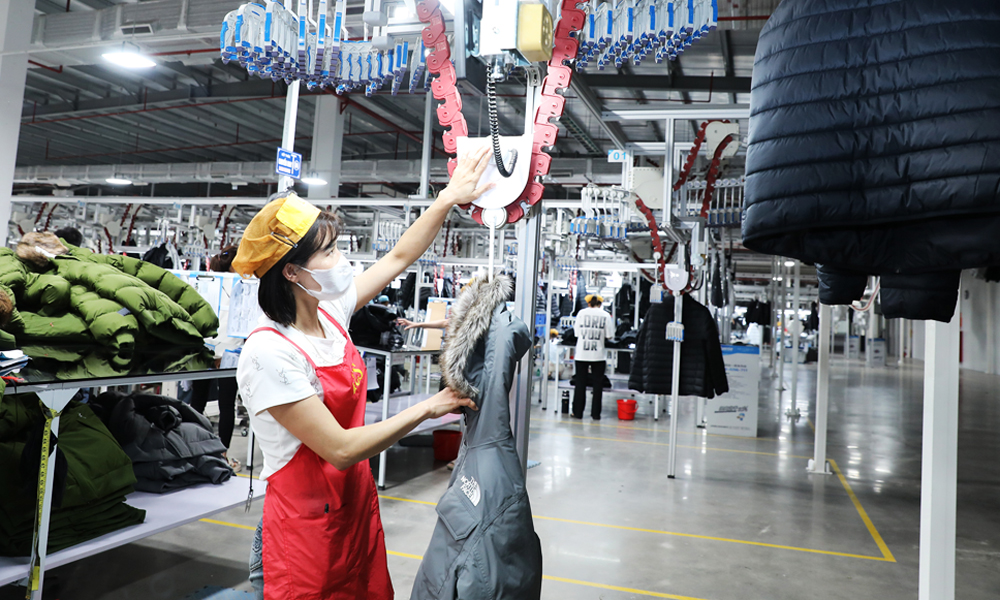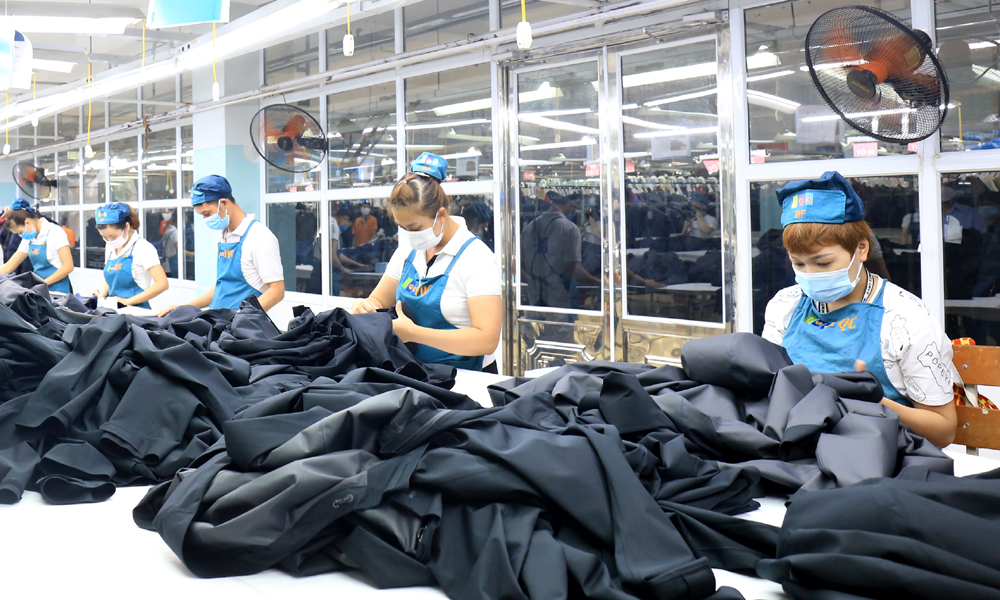Bac Ninh creates new growth momentum for private economy
BAC NINH – In recent years, Bac Ninh has emerged as one of the fastest-growing provinces in Vietnam, significantly driven by its expanding private sector.
Before their merger in July 2025, the former provinces of Bac Giang and Bac Ninh had already posted years of double-digit growth. Their economies rapidly shifted toward industry and services, placing them among the top performers nationwide.
 |
|
Automated production line at Thanh Dung CNC Mechanical Co., Ltd. in Dabaco Industrial Cluster in Tan Chi commune. |
Since the official merger on July 1, the newly expanded Bac Ninh province has sustained stable growth, with the index of industrial production (IIP) rising 12.64% in July and 16.78% in August 2025.
A significant share of this performance comes from private enterprises. Thanh Dung CNC Mechanical Co., Ltd, based in Dabaco Industrial Cluster in Tan Chi commune, specializes in precision machining, milling and CNC turning.
The company is a core subcontractor for major foreign-invested manufacturers in Bac Ninh, including Luxshare, Goertek, Foxconn and Samsung.
 |
|
Canned lychee in syrup produced by VIFOCO Import-Export JSC in Tien Phong ward is exported to South Korea, France and Germany. |
In the first seven months of 2025, Thanh Dung reported revenues of 30 billion VND (1.3 million USD) and is targeting a 10% annual increase compared with 2024. It paid over 4.8 billion VND in taxes to the state budget during the period.
Director Do Thanh Dung said the company plans to expand production capacity and build new facilities, with revenues projected to reach several hundred billion VND annually in the coming years.
According to Bac Ninh’s Tax Department, the private sector contributed more than 20% of the province’s total budget revenues between 2022 and 2024, equivalent to 24.26 trillion dong. “Private sector tax revenues are sustainable and steadily rising year after year,” said tax chief Do Cong Tien.
Besides fiscal contributions, private firms and household businesses provide livelihoods and employment for tens of thousands of workers. Their flexibility and quick adaptability also make them vital suppliers of essential goods and services across the province.
Official data shows Bac Ninh ranks among the six provinces with the fastest average growth rate in new business formations in 2022–2024 compared with 2014–2015, surpassing the national average of 51.3%. It is also among the top eight provinces with the highest density of operating enterprises per 1,000 residents, ranking third in the Red River Delta region after Hanoi and Hai Phong.
From January to the end of August 2025, the province granted registration to 4,823 new enterprises, 312 branches and representative offices, and 1,912 business locations, with total registered capital of 50.96 trillion VND.
This brought the total number of registered private enterprises in Bac Ninh to over 30,500, with combined registered capital of about 400 trillion VND, alongside more than 112,400 household businesses.
The scope, management capacity, technological sophistication, and competitiveness of the private sector in Bac Ninh have grown steadily. This progress stems not only from the resilience and ambition of entrepreneurs but also from the support of provincial authorities, who have worked to create a more favorable business environment.
Private manufacturers in Bac Ninh are expanding their footprints in both domestic and international markets. At BGG Garment JSC in Nghia Hoa Industrial Cluster, production lines are running at full capacity to supply apparel to export partners.
Meanwhile, VIFOCO Import-Export JSC, based in Tien Phong ward, has successfully exported canned lychee in syrup to South Korea, France, and Germany, broadening Bac Ninh’s agro-processing reach beyond traditional markets.
 |
|
The production workshop of BGG Garment JSC in Nghia Hoa Industrial Cluster. |
The province’s leadership sees the private sector as a pillar of future growth. By streamlining administrative procedures, expanding industrial zones, and promoting digital transformation, Bac Ninh is encouraging small and medium-sized enterprises (SMEs) to innovate and scale up. Officials also emphasize the importance of linking domestic firms with multinational corporations to deepen local supply chains.
Challenges remain, however. Many SMEs still face difficulties in accessing finance, modern technology, and skilled labor. Productivity gaps between domestic firms and foreign-invested enterprises persist, underscoring the need for more targeted support programs.
Despite these hurdles, Bac Ninh’s trajectory is clear. The merger of two dynamic provinces has created a larger economic hub with stronger infrastructure, greater industrial diversity, and a more vibrant private sector. If current trends continue, Bac Ninh is poised to consolidate its role as a growth engine in northern Vietnam.
 Bắc Ninh
Bắc Ninh












Reader's comments (0)